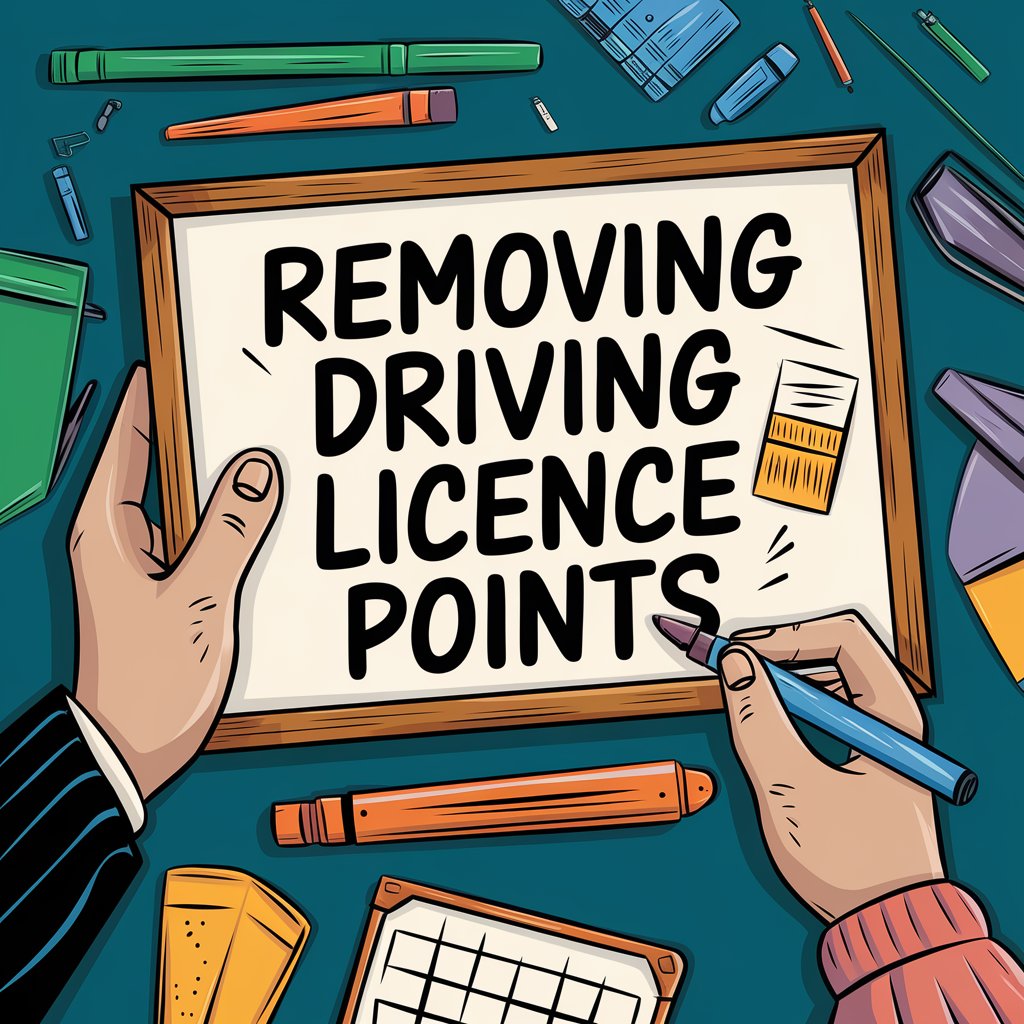According to multiple legal sources, there is no direct way to remove penalty points from a driving licence before they expire naturally after 3-4 years. However, drivers may have options to challenge convictions or sentences through appeals, case reopenings, or statutory declarations in certain circumstances.
Statutory Declaration for Convictions
A statutory declaration for convictions is a formal legal document used in various situations, particularly in motoring offences and licensing applications. It allows individuals to declare under oath the truth about their criminal history or lack thereof. Here are key aspects of statutory declarations for convictions:
• Purpose: Statutory declarations are often used to disclose convictions, cautions, and pending prosecutions, especially for hackney carriage and private hire driver applications. They can also be used to reopen court proceedings after a conviction or sentence when the individual was unaware of the original proceedings.
• Content: The declaration typically includes personal details, a list of all convictions, cautions, and pending prosecutions (if any), or a statement that the individual has never been convicted or cautioned.
• Legal implications: Making a false statutory declaration is a serious offence. Any person who knowingly and willfully makes a false declaration is guilty of an offence and liable to conviction.
• Time constraints: In cases of motoring offences, the statutory declaration must be made within 21 days of realizing you were convicted without your knowledge. This deadline is crucial, as courts may refuse declarations made after this period.
• Authorized witnesses: The declaration must be signed in the presence of a solicitor, commissioner for oaths, or notary public. This ensures the legal validity of the document.
• Effect on convictions: When properly made and served, a statutory declaration can cancel a previous conviction and sentence, effectively restarting the legal proceedings. This is particularly relevant in cases where individuals were unaware of the original court proceedings.
• Use in licensing: Many licensing authorities, such as those for taxi and private hire drivers, require statutory declarations as part of their application process to ensure applicants disclose their full criminal history.
It’s important to note that while statutory declarations provide a means to address convictions made in absence, they should be used carefully and truthfully. Legal advice is often recommended when making such declarations, especially in complex cases or when there are potential implications for licenses or employment.
Speed Awareness Course Eligibility
Speed awareness courses are offered as an alternative to penalty points and fines for drivers caught speeding within certain limits. Eligibility criteria include:
• Speed thresholds: Drivers must have been caught speeding within specific ranges, typically between 10% + 2 mph and 10% + 9 mph over the posted limit. For example:
24-31 mph in a 20 mph zone
35-42 mph in a 30 mph zone
46-53 mph in a 40 mph zone
57-64 mph in a 50 mph zone
68-75 mph in a 60 mph zone
79-86 mph in a 70 mph zone
• Time constraints: The offence must have occurred within the last 12 weeks.
• Previous offences: Drivers are ineligible if they’ve attended a speed awareness course within the past 3 years.
• Admission of offence: The driver must admit to being the vehicle’s operator at the time of the alleged offence and return the documentation within 28 days of receiving the Notice of Intended Prosecution.
• No additional offences: There should be no other driving offences committed simultaneously.
• Police discretion: Ultimately, the offer of a speed awareness course is at the discretion of the local police force. Even if a driver meets all criteria, the police may still opt for a fine and penalty points.
• Course cost: The course typically costs £90, which is less than the standard £100 fine for speeding.
It’s important to note that eligibility criteria may vary slightly between different police forces. Drivers cannot request to attend a course; if eligible, they will be notified by the police. The course is designed to educate drivers about the consequences of speeding and aims to reduce reoffending.
Appealing to the Crown Court
Appealing to the Crown Court is a crucial process for individuals who disagree with a magistrates’ court decision. This option is available for those who were able to plead guilty or not guilty but still believe the decision was unfair or that the judges failed to consider all relevant circumstances or evidence.
Key points about appealing to the Crown Court include:
• Timeframe: Appeals must typically be lodged within 21 days of the magistrates’ court decision. However, some sources indicate a 15-working-day window. It’s crucial to act promptly to avoid missing the deadline.
• Process: To initiate an appeal, download and complete the ‘Appeal to the Crown Court’ form relevant to your crime or sentence. Submit this form by post or email to the address specified on the form.
• Scope of appeal: If you pleaded guilty in the magistrates’ court, you can only appeal against your sentence. Those who pleaded not guilty can appeal both the conviction and sentence.
• Nature of the hearing: Appeals to the Crown Court are essentially a complete re-hearing of the original trial. The same or other witnesses may be called, and evidence will be presented anew.
• Court composition: The appeal will be heard by a Crown Court Judge and at least one magistrate.
• Potential outcomes: The Crown Court has the power to confirm the original conviction, substitute a not guilty verdict, or adjust the sentence. It’s important to note that the court can confirm, reduce, or even increase any sentence imposed.
• Costs consideration: If your appeal is unsuccessful, you may be ordered to pay additional prosecution costs.
• Legal representation: While not mandatory, it’s advisable to consult with a legal representative or adviser before proceeding with an appeal. They can help assess the merits of your case and guide you through the process.
• Stopping an appeal: You can apply to stop your appeal before the hearing by sending a ‘notice of abandonment of appeal’ to the relevant courts. However, once stopped, an appeal cannot be restarted.
It’s crucial to understand that appealing to the Crown Court is a serious decision with potential consequences. Carefully consider the grounds for your appeal and seek legal advice if necessary to ensure the best possible outcome.
Filing a Statutory Declaration
Filing a statutory declaration is a crucial process for individuals who have been convicted of an offence, particularly motoring offences, without their knowledge. The procedure involves several key steps:
• Obtain the statutory declaration form from your local magistrates’ court or download it from the UK government website.
• Complete the form with accurate information, including:
Your full name, date of birth, and address
The court where you were convicted
The date of the hearing and when you became aware of the conviction
An explanation of how you found out about the case
• Submit the declaration within 21 days of becoming aware of the conviction. This timeframe is critical, as courts may refuse declarations made after this period.
• Have the declaration witnessed and signed by an authorized person, such as a solicitor, commissioner for oaths, or notary public.
• File the completed and witnessed declaration with the court that convicted you in your absence.
• Attend a hearing at the magistrates’ court to formally present your statutory declaration.
If accepted, the statutory declaration will set aside the original conviction and penalty. The case may then be dismissed or re-heard, giving you the opportunity to defend yourself.
It’s crucial to ensure all information in the declaration is truthful and accurate. Making a false statutory declaration is a serious offence under Section 5 of the Perjury Act 1911, punishable by imprisonment or a fine.
If your declaration is refused, you may still have the option to appeal to the Crown Court, even if out of time. Given the legal complexities and potential consequences, seeking advice from a legal professional is highly recommended when filing a statutory declaration.
Impact on Driving Records
Penalty points on a driving licence can have significant and lasting impacts on a driver’s record. These points, also known as endorsements, remain visible on a driver’s record for varying durations depending on the severity of the offence.
For minor offences, such as speeding, penalty points typically stay on a driver’s record for four years from the date of the offence. However, they are considered “active” for only the first three years, during which they count towards potential disqualification under the “totting-up” system.
More serious offences, like dangerous driving or drink driving, result in longer-lasting impacts. In these cases, penalty points can remain on a driver’s record for up to 11 years for DVLA purposes and 10 years for court considerations. This extended period reflects the gravity of such offences and serves as a long-term deterrent.
The accumulation of penalty points can lead to severe consequences. If a driver accrues 12 or more points within a three-year period, they face potential disqualification from driving. This “totting-up” system is designed to identify and penalize repeat offenders who consistently violate traffic laws.
It’s important to note that even after points become “inactive” after three years, they remain visible on the licence until their designated removal date. This visibility can impact various aspects of a driver’s life, including:
• Insurance premiums: Insurers often consider penalty points when calculating premiums, potentially leading to higher costs for drivers with points on their record.
• Employment opportunities: Some jobs, particularly those involving driving, may be affected by the presence of penalty points on a licence.
• Car rental: Rental companies may impose restrictions or higher fees for drivers with penalty points.
• Travel abroad: Some countries may have stricter entry requirements for drivers with penalty points on their UK licence.
The impact of penalty points on driving records underscores the importance of safe and responsible driving. It serves as a continuous reminder of past infractions and encourages drivers to maintain good driving habits to avoid further penalties and potential disqualification.
Summary
The management of driving licence points involves understanding various legal processes and their implications. Points cannot be removed before their natural expiry period, but drivers have access to multiple options including statutory declarations, speed awareness courses, and Crown Court appeals. The duration and impact of penalty points vary based on offence severity, affecting everything from insurance costs to employment opportunities. While there’s no direct way to remove points early, proper understanding of these processes and maintaining safe driving habits are essential for managing and preventing licence endorsements.




